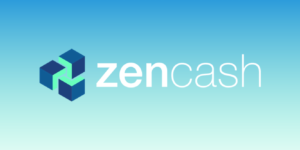Sometimes we get caught up in the cryptocurrency hype, with all the claims of incredible gains coming from the crypto markets and all the new bitcoin millionaires from early adopters. It’s easy to forget the origins of the cryptocurrency movement, and what brought bitcoin and blockchain technology to the forefront.
The original intent for bitcoin and blockchain companies was to create a decentralized model for the financial-monetary system. Bitcoin’s protocol essentially eliminated the need for a trusted third party (i.e., governments and institutions) to handle the middleman position regarding financial transactions and monetary accounting.
However, there is a group of cryptos that are being created and developed to address these ongoing concerns of privacy, anonymity, and fungibility. Privacy-focused cryptocurrencies intend to provide users with anonymity throughout the transaction process, with varying levels of privacy offered depending on which blockchain or crypto you’re looking at.
Privacy coins provide cryptocurrency users with a blockchain-based platform to send and receive coins without revealing their identity. This is the type of feature that the early bitcoin adopters wanted when they started using cryptocurrencies. The coin we’re discussing today, ZenCash, is one of the leading projects with privacy-focused cryptocurrency looking to bring anonymity back to the blockchain.
ZenCash Background
ZenCash aims to be a cryptocurrency offering a user-friendly, secure and reliable, community-governed platform for financial transactions. Over the long term, they are working to create a scalable, yet decentralized blockchain platform, making ZEN more than merely another peer-to-peer privacy coin.
Rob Viglione and Jane Lippencott founded ZenCash. Viglione comes with a background as a physicist and mathematician and is pursuing a Ph.D. in crypto economics of all things. His focus with the team is developing the decentralized governance model that truly makes this cryptocurrency a community-based effort. Lippencott joined the ZenCash team with a background in venture capital and hedge funds, where she successfully built strategic partnerships for global expansion.
The origins of ZenCash lie with Zcash, which is a blockchain protocol forked from bitcoin in 2016. Zcash is essentially bitcoin with a privacy feature that allows for transactions to mask the sender, receiver and transaction amount. However, the Zcash community was not a big fan of the founder’s reward that allocated 20 percent of all created coins in the first four years to the early investors and developers.
Zcash then forked to Zclassic to circumvent the founder reward program. But later more innovation was discussed in the Zclassic community, and ZenCash was created from their protocol. ZenCash supporters saw the lack of a formal governance model for the project’s future, and that’s one of the primary focuses for ZenCash, creating a Decentralized Autonomous Organization.
ZenCash also partnered with Charles Hoskinson’s development company IOHK. Hoskinson is one of the original founders of Ethereum and worked with Dan Larimer of Bitshares and the head honchos of the crypto platforms Cardano. IOHK is helping the ZenCash team work on their scalability, along with implementing a Decentralized Autonomous Organization (DAO), which means that it’s self-funded using a portion of the token emissions to support the organization along with community voting aspects from token holders. ZenCash has a 12-month plan slated for the development of their DAO and scalability solutions.
The ZenCash Model
Under the framework of a DAO, there is a community of dedicated members that support the network with either donations or to simply help their token holdings increase in value. ZenCash’s model is self-funding, with no ICO or venture capital investors. And, no pre-mine period gave founders an initial stake of tokens. ZenCash’s objective is to remain as decentralized and community-focused as possible. ZenCash’s DAO sees about 8.5% of the mining rewards to help its self-funded community allocate funds to continuing projects and development of the platform.
The project’s development, governance, and network maintenance and improvement are all funded by a portion of the mining rewards, as 88% of the rewards get allocated to the miners through a Proof-of-Work mining process using the algorithm Equihash (the same one used by Bitcoin Gold). Using Equihash allows just about anyone with a recent graphics processing unit (GPU) to mine ZenCash tokens.
The objective behind this is to enable as many miners into the mining network and lower the barrier to entry for nodes supporting the blockchain. One vital part of a decentralized blockchain is the distributed access for miners to operate on the network. As of now, 3.5% of the mining rewards go to ZenCash’s secure nodes.
ZenCash Nodes
ZenCash is well over 8,500 secured global nodes, providing the backbone of their platform. The network of nodes helps facilitate the ZenCash infrastructure that allows for their development of a secure privacy currency and communication channel. To use other larger cryptocurrencies as a comparison, Dash has a 25 times bigger market cap, but only has around 4,500 master nodes supporting its network. Ethereum, the second largest cryptocurrency on the market, has about 14,500 nodes.
ZenCash finds itself in a promising situation with regards to their network support and decentralized network. Setting up master nodes is no easy task. It’s not as simple as downloading the ZenCash wallet and becoming a participant on the network. Nodes go through a specific process to meet specific hardware requirements to qualify as a secure node.
Secure nodes run specific software that requires them to maintain valid Transport Layer Security (TLS) certificates. This has been employed across the web for years to encrypt web traffic and prevent the data exchanged between servers and users from being read or altered. Having a distributed network of secure nodes helps ensure that there is no single point of failure and that it’s incredibly hard to take down the network with thousands of secure nodes around the world.
What’s Next for ZenCash?
ZenCash is hoping to continue developing their projects throughout the year and work towards becoming the premier privacy-focused blockchain and cryptocurrency. One additional feature being worked on is ZenChat, which is intended to be a secure messaging application built using the ZenCash blockchain network. This feature is available for full node wallets but is in the process of being improved for usability.
ZenCash is also developing an InterPlanetary File System (IPFS) to provide users with a secure and anonymous publishing protocol. IPFS is the currently proposed alternative for HyperText Transfer Protocol (HTTP), which is widely used by websites on the internet (i.e., the ‘http://’ before every website URL you see). IPFS is supposed to provide a decentralized aspect for the internet, and by publishing the IPFS addresses through the new secure messaging application, ZenCash can provide a service for completely anonymous content transfer.
Final Thoughts
ZenCash is a privacy-focused cryptocurrency that has a long-term vision past simple anonymous financial transactions. The ZenCash community has an overall vision for a private, anonymous platform for creating a decentralized internet. The privacy features being developed and implemented on the ZenCash platform are changing the game with how anonymity is achieved for a user’s internet activity. They are working on building a blockchain based platform with a primary focus on decentralization, because that’s the critical factor in their minds for building a privacy-focused community.








